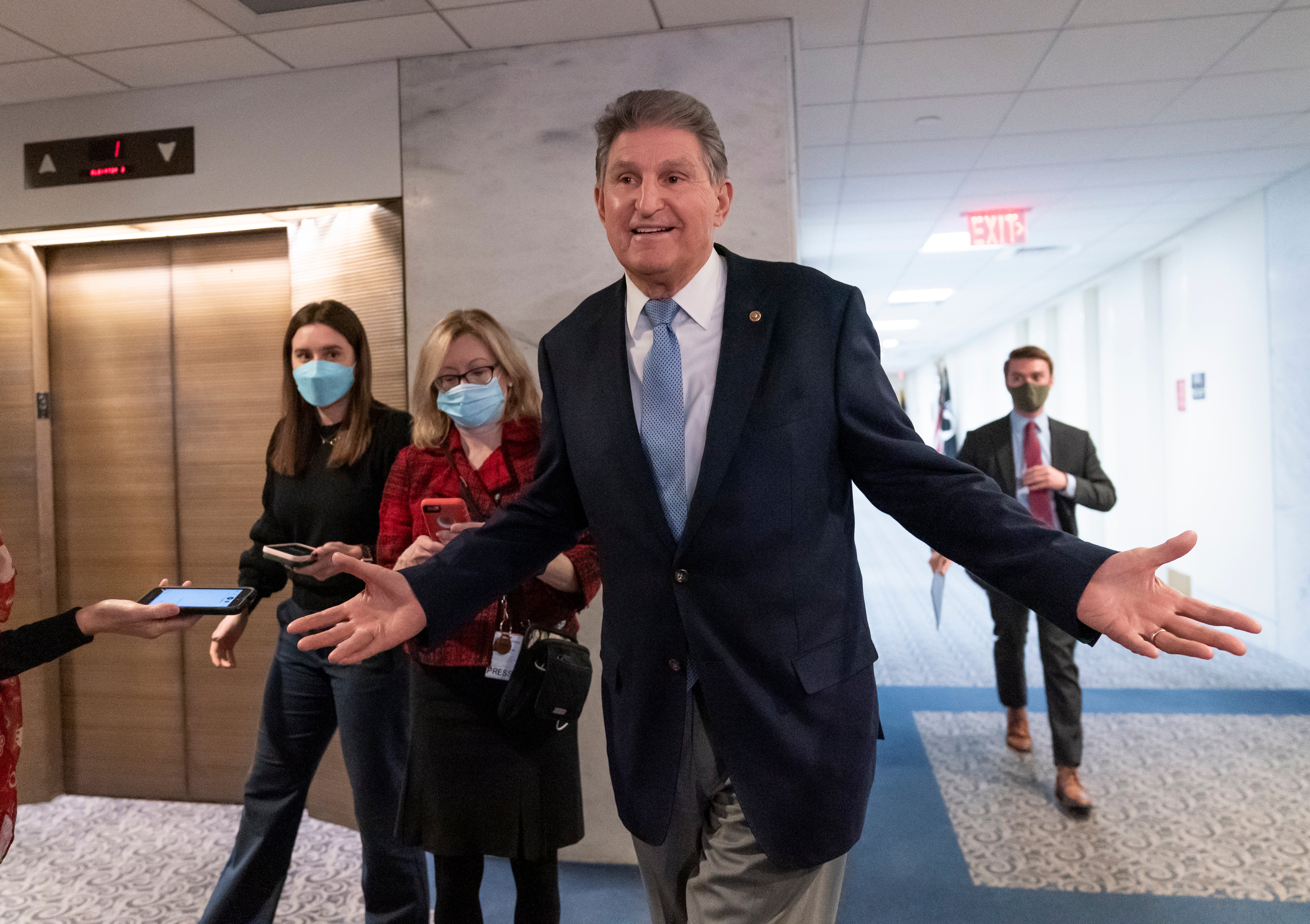Manchin hits Dems' $2T bill as too costly, talks to Biden
Sen. Joe Manchin is signaling anew that he’s still not ready to back his party’s $2 trillion social and environment legislation as party leaders scramble for a pathway to advance the long-stalled package — preferably by Christmas

Your support helps us to tell the story
From reproductive rights to climate change to Big Tech, The Independent is on the ground when the story is developing. Whether it's investigating the financials of Elon Musk's pro-Trump PAC or producing our latest documentary, 'The A Word', which shines a light on the American women fighting for reproductive rights, we know how important it is to parse out the facts from the messaging.
At such a critical moment in US history, we need reporters on the ground. Your donation allows us to keep sending journalists to speak to both sides of the story.
The Independent is trusted by Americans across the entire political spectrum. And unlike many other quality news outlets, we choose not to lock Americans out of our reporting and analysis with paywalls. We believe quality journalism should be available to everyone, paid for by those who can afford it.
Your support makes all the difference.Democratic Sen. Joe Manchin has signaled anew that he's still not ready to back his party's $2 trillion social and environment legislation, then talked to President Joe Biden as party leaders scrambled for a pathway to advance the long-stalled package — preferably by Christmas.
The West Virginia lawmaker declined to describe his telephone conversation with the president Monday, saying he and Biden are “talking about different iterations" and saying “anything's possible" when asked if they could reach a deal by the holiday.
White House spokesman Andrew Bates said the two men had “a good, constructive phone call" and would talk again soon.
In earlier comments to reporters, Manchin did not specifically threaten to vote against the legislation or say he opposed the goal of Senate Majority Leader Chuck Schumer, D-N.Y., to approve a compromise by Christmas. But his stance underscored that the White House and Senate leaders still must make concessions to nail down Manchin's support.
Democrats must have his backing because the Senate is evenly divided and Republicans oppose the legislation unanimously. One of his party's final holdouts, Manchin has been pushing for months for Democrats to curb the bill's size and drop some initiatives, including one requiring paid family and medical leave.
Earlier Monday, Manchin told reporters he wants leaders to choose their “highest priorities” in the package, make them all last for a full 10 years instead of just several and squeeze all that into a measure costing less than $2 trillion. The legislation limits many of Democrats' priorities to just a few years to limit the measure's 10-year price tag.
With the current bill emerging from more than seven months of often bitter negotiations among Democrats, reconfiguring it that dramatically seems all but impossible at this point.
In his first public comments since a pair of government reports were issued last week, Manchin said one showing that inflation is rising at an annual rate of 6.8%, the most in four decades, was “alarming."
He also expressed dismay at a Republican-requested analysis that said the legislation would add an additional $3 trillion to federal deficits if all its programs were made permanent. Democrats have derided that report by the nonpartisan Congressional Budget Office as ridiculous since they say they would find ways to pay for any extensions of the bill's programs.
Before speaking to Manchin, Biden told reporters at the White House that when he talks to lawmakers, he tries to “convince them that what I’m proposing makes sense and is not inconsistent with what they believe."
Other unresolved issues about the bill include whether the chamber's parliamentarian will rule that several provisions, including one helping migrants stay in the U.S., should be removed because they violate Senate rules.
The House approved its version of the legislation last month.
One reason for Democrats' urgency is that unless the measure is approved by Dec. 28, the IRS won’t have time to prepare checks due Jan. 15 to millions of families that receive the child tax credit, Senate Finance Committee Chairman Ron Wyden, D-Ore., has said.
___
AP congressional correspondent Lisa Mascaro contributed to this report.